#trump
Gas War: California Finalizes Side Deal With Automakers
The California Air Resources Board (CARB) made a slew of announcements on Monday regarding what types of vehicles will be allowed within the confines of its borders. These included everything from proclaiming aftermarket parts would be subject to a faster approval (or denial) process in the future, to announcing a joint initiative with 15 other states (most of whom joined CA in opposing the fuel efficiency rollback), to accelerating the implementation of electrified buses and trucks.
It also confirmed that California has finalized binding agreements with several automakers to cut vehicle emissions. BMW, Ford Motor Co., Honda Motor Co., and Volkswagen Group all entered into a voluntary agreement with the Golden State to adhere to Obama-era emission mandates last summer. While this prompted the U.S. Justice Department to launch an antitrust investigation into the deal, no action was taken. CARB said those companies — and some of their friends — made a binding commitment to California this month and will commit to its new emission targets, rather than the revised quotas set by the federal government.
Don't Bet on Seeing Chinese Brands in the U.S. Anytime Soon
Over the past decade, regular reports that Chinese automakers were readying a major push into the North American market became commonplace. We started seeing them move out of trade show basements to take up some of the most desirable real estate on the main floor. While some of the product clearly wasn’t yet up to snuff, one could imagine budget-focused products flooding the U.S. and Canada after a few years of polish. However, the last time that seemed like a likely scenario was 2018.
Chinese brands are still trying to break into the untapped North American market; some even have physical office space set up within the United States. However, Sino-American relations have soured dramatically over the past few years, and new financial hurdles have made wrangling a new market extremely difficult.
Will Trump's Fuel Economy Rollback Cost Jobs?
Center-left political/culture magazine The Atlantic dropped an interesting piece onto the Web Tuesday. In it, author Robinson Meyer lays out a case, based in part on the Trump administration’s own writings, that the fuel economy rollback approved in late March will actually cost jobs and reduce the amount Americans drive.
Meyer piggybacks off his previous reporting, suggesting the Department of Transportation froze out the Environmental Protection Agency and the state of California while working on the rollback. He further suggests, by citing passages from the 2,000-page report the administration prepared on the rollback (officially dubbed Safer Affordable Fuel Efficient Vehicles, or SAFE), that 13,500 automotive-related jobs will be lost.
Trump Edges Closer to Invoking Defense Production Act
One should never pay too close attention to social media, but sadly, that’s where a lot of diplomacy takes place these days. Especially today.
Since dawn broke over the nation Friday, President Donald Trump has chastised General Motors and Ford for their perceived foot-dragging in getting much-needed ventilators into production, urging them to pick up the pace and suggesting that he might invoke the Defense Production Act — a wartime measure aimed at aligning industrial output with America’s immediate defense needs. In this case, the enemy is microscopic, but packs a punch.
We’re already on it, Ford and GM replied.
Gas War: Trump Confirms U.S. Will Revoke California Fuel Waiver
While a considerable portion of Donald Trump’s Twitter announcements aren’t worth paying much attention to, he does occasionally slip some actual information in there. This week, the nugget was the confirmation that his administration intends to revoke California’s federal waiver on emissions — stripping the state of its ability to self-regulate and readying America for the gas war’s main event.
The Environmental Protection Agency was already known to be making preparations to do exactly this, but the president’s Wednesday posting made things crystal clear. “The Trump Administration is revoking California’s Federal Waiver on emissions in order to produce far less expensive cars for the consumer, while at the same time making the cars substantially SAFER,” he wrote.
Gas War Watch: EPA and CARB Leadership Won't Even Share the Same Table
Capitol Hill was the scene of some high-school drama this week after representatives from the Environmental Protection Agency (EPA) and the California Air Resources Board (CARB) reportedly refused to sit at the same table while discussing fueling regulations with the U.S. House Energy and Commerce Committee.
As petty as this seems, it illustrates the overall situation rather well. White House officials terminated talks with California in February, citing an inability to progress the debate. Meanwhile, CARB has been claiming the Trump administration doesn’t want to hear its case and has instead sought to strip the state of its ability to self regulate in order to pass reforms that would freeze national emissions standards at 2020 levels though 2026.
Thursday’s congressional bickering helped paint a clearer picture of what the communications breakdown looked like.
Gas War Watch: UAW Goes to Congress, Sides With Automakers on Fuel Economy Rollback
The United Auto Workers is spending Thursday telling Congress that the union opposes the Trump administration’s proposal to freeze fuel efficiency requirements at 2020 levels through 2026… sort of. While the UAW expressed moderate environmental concerns in the past, most of its opposition to the rollback has revolved around corporate investments into the industry. In fact, the union’s research arm called fuel economy the auto industry’s “future” in 2018.
This time around, the UAW seems to be singularly focused on business aspects. According to a prewritten testimony, UAW Legislative Director Josh Nassar intends to tell two subcommittees of the U.S. House Energy and Commerce Committee that the union is in line with automakers’ concerns about the proposal leading to “protracted litigation and uncertainty in the industry that will limit growth.”
The Great Gas War: House Committee Plans Hearing On Fuel Efficiency Rollback
On Tuesday, the House of Representatives Energy and Commerce Committee said it will schedule a hearing on June 20th regarding the Trump administration’s proposal to roll back automotive efficiency standards. The decision comes from Committee Chairman Frank Pallone, Jr. (D-NJ), Consumer Protection and Commerce Subcommittee Chair Jan Schakowsky (D-IL) and Environment and Climate Change Chairman Paul Tonko (D-NY) — all of whom are in clear opposition to the suggested plan.
The groups will hold a joint hearing to discuss Corporate Average Fuel Economy (CAFE) standards and carbon pollution regulations affecting light duty vehicles as they relate to the current administration’s plan to effectively freeze efficiency targets between 2020 to 2026.
It's Monday, and Mexican Tariffs Are Back On the Table
After the United States and Mexico signed an agreement to stem the flow of illegal migrants from Central America across their shared border, President Donald Trump’s latest tariff proposal was taken off the table. You could almost hear the sphincters of every global automaker collectively unclench in that moment. Unfortunately, their rectal vacation appears to have been short lived.
“We have fully signed and documented another very important part of the Immigration and Security deal with Mexico, one that the U.S. has been asking about getting for many years. It will be revealed in the not too distant future and will need a vote by Mexico’s legislative body,” Trump tweeted on Monday. “We do not anticipate a problem with the vote but, if for any reason the approval is not forthcoming, tariffs will be reinstated!”
Mexican Tariffs Off the Table Following Border Deal
The United States maintained the threat of tariffs on Mexican goods until Friday night, less than three days before a 5 percent levy was poised to hit incoming products from south of the border. It seems the pressure worked, with the U.S. and Mexico signing a deal late Friday to prevent both tariffs and the northward flow of illegal migrants from Central America.
Automakers are no doubt breathing a sigh of relief.
Meet Us in the Middle: Automakers Plead for Peace, Compromise Between White House and California
The automotive industry is in turmoil. There’s an industrywide push toward electrification that has yet to prove itself as truly profitable, volume seems to be tapering off in the developed world, and emissions regulations aimed at improving air quality are operating counter to existing consumer tastes. As a result, automakers are scrambling to find the best path forward.
In 2017, that path involved encouraging the new U.S. president to roll back Obama-era fuel economy mandates, thus providing some breathing room and staving off fines as automakers began to realize they wouldn’t be able to meet tightening targets. The administration listened, leading to a proposal that would effectively freeze mileage standards at about 37 miles per gallon — rather than the previously decided 54.5 mpg — by 2025.
However, California and a coalition of supportive states claim they won’t be going along for the ride. This group says it will maintain the old standards, regardless of what the White House says. The staredown has automakers worried; they’ve now banded together to issue a letter asking both sides to calm down and keep talking.
U.S. to GM: Sorry, Pay Your Buick Envision Tax
Pity the poor Buick Envision. As one of the few Chinese-built vehicles sold in America, it earned an unpatriotic stigma upon its arrival. There’s no word on how many UAW workers own one. Meanwhile, the compact crossover launched partway through the 2016 model year with only high-end trims in tow, saddling it with a steep starting price. The entry price has since declined to saner levels.
Just when Buick thought it had righted the Envision ship, the U.S. hiked tariffs on a slew of Chinese goods to 25 percent last July, suddenly making the Envision a less profitable endeavor for the doctor’s car brand. As we learned today, General Motors’ appeal for mercy apparently fell on deaf ears.
Automakers, Already Taking a Hit From Trump's Mexican Tariff Threat, Worry the Pain Has Only Just Begun
The profit-focused appeal of building vehicles in low-cost jurisdictions propelled many automakers to boost manufacturing capacity in America’s southern neighbor — a decision that now haunts them.
After President Donald Trump issued a Thursday statement declaring his administration would levy a 5 percent tariff on all Mexican-made goods starting June 10th, some $17 billion in market value evaporated from top automakers the following day. Ford, General Motors, and Fiat Chrysler all saw their share prices tumble. Should Trump follow through on his promise of an escalating tariff (a threat designed to stem illegal migration into the U.S.), the pain felt by both companies and their customers will be extreme.
Naturally, the industry is pushing back the best it can.
Trump Promises Tariffs on All Mexican Goods Starting June 10th
Just when it seemed the trade climate in the North American region was easing, President Donald Trump launched a new salvo late Thursday, promising a 5 percent levy on all Mexican goods crossing the U.S. border if the country doesn’t stem the flow of illegal migrants.
The tariff would land on all Mexican goods on June 10th, ramping up to 10 percent on July 1 before topping out at 25 percent by October. For automakers and those who sell (and buy) the final product, the prospect of a new import levy is the stuff of nightmares.
Auto Tariffs Off the Table for 180 Days, Trump Claims
U.S. President Donald Trump pushed the threat of tariffs on imported vehicles to the background on Friday, announcing a 180-day pause as the country negotiates trade agreements with Japan and the European Union.
The delay comes a day ahead of a Saturday deadline imposed by the Commerce Department. In February, the department delivered the findings of an investigation on whether auto imports represent a national security threat to the United States. The report, not seen by the public, issued recommendations to the White House.




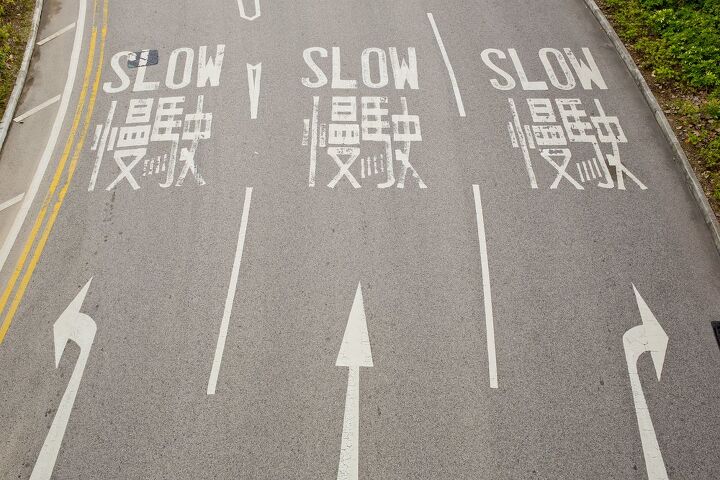


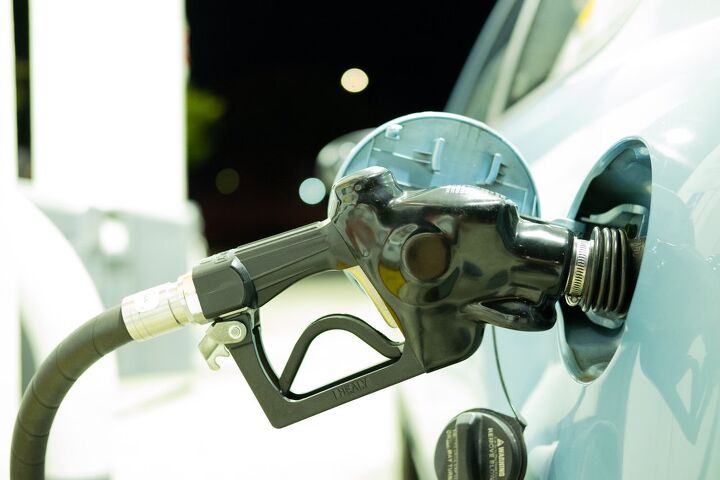


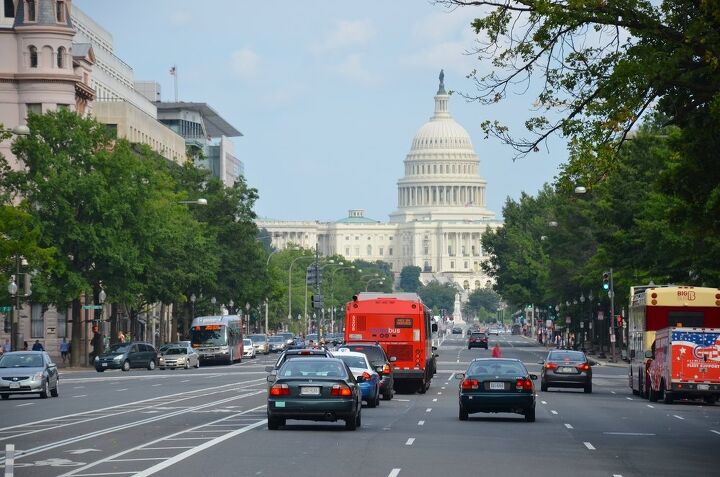
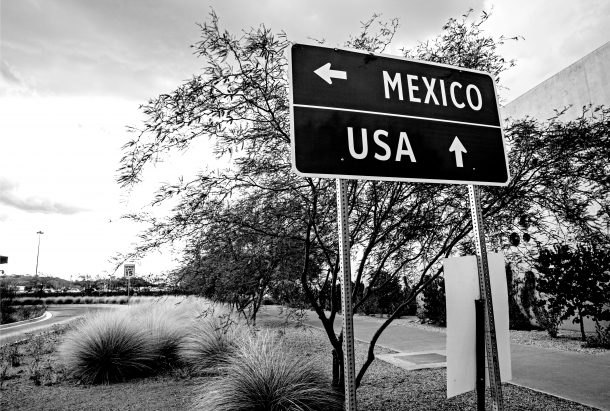


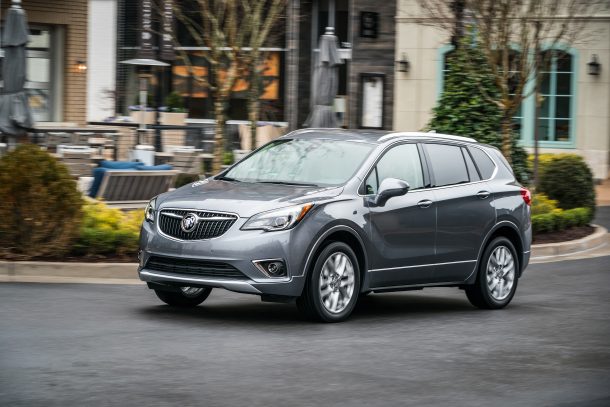
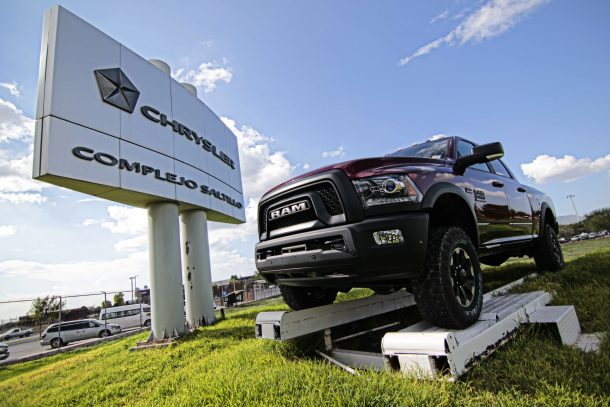
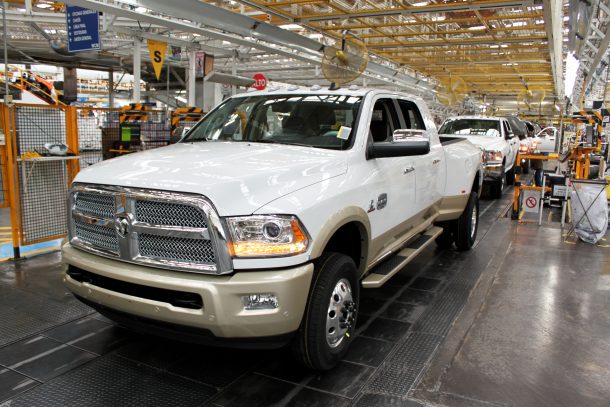













Recent Comments